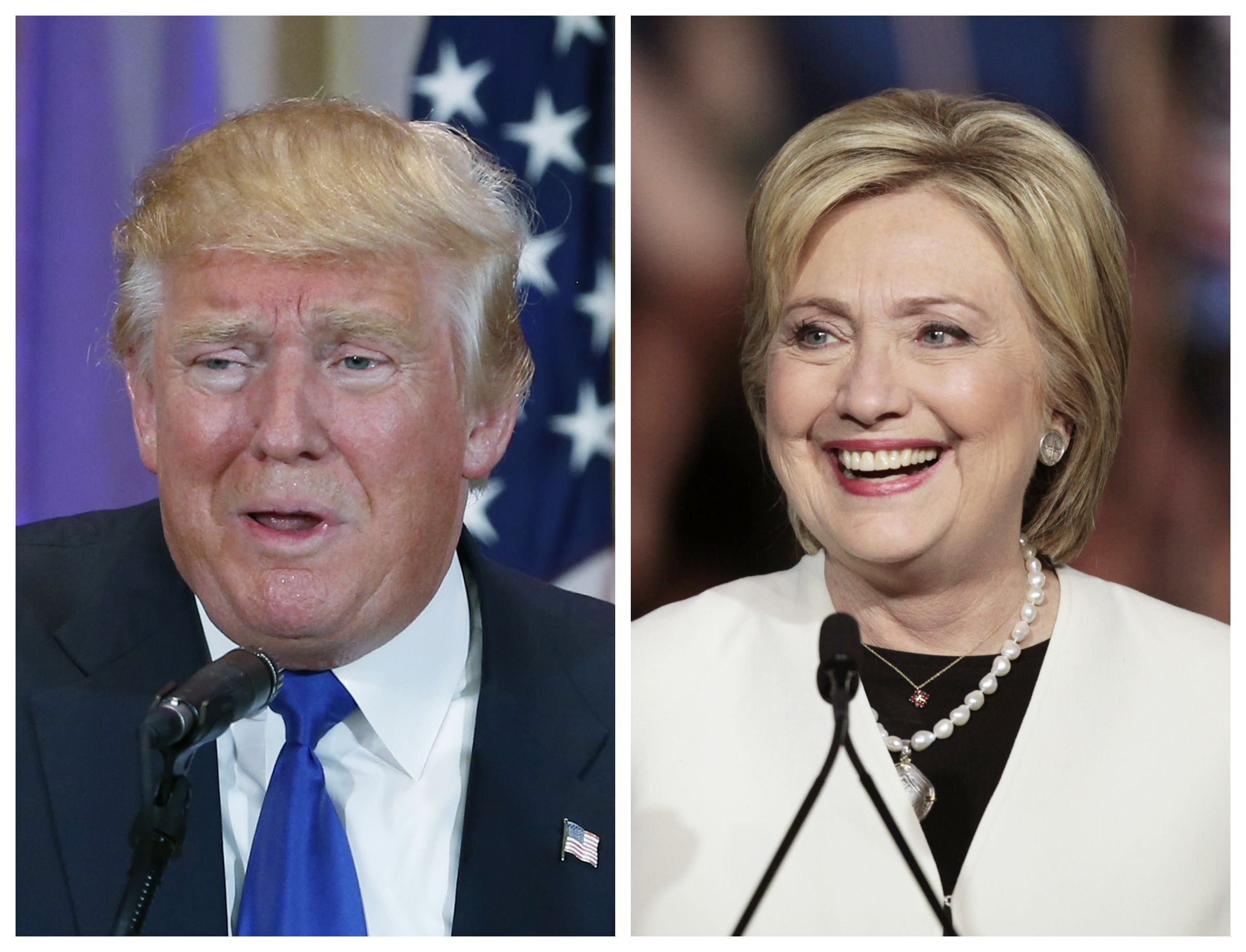
Tonight was the first night of the general election, and Donald Trump won.
Ted Cruz and Marco Rubio don't have a path to the nomination. Neither does Bernie Sanders.
Super Tuesday 2016 will be remembered as the night Hillary Clinton and Trump won their parties' nominations.
It's not that the two New Yorkers have it mathematically clinched, of course—only about 15 states have chosen delegates. But the majority of delegates will have been chosen by the end of this month, and given what we know about organization and demographics, it's hard to see the presidential race going any other way. Cruz and Rubio, who won a whopping three states between them, are essentially what used to be called Favorite Son candidates: representing their home states in order to wield influence at a convention, but with limited national appeal and little prospect of being their party's nominee. Given how Rubio lost race after race, it's questionable whether he can win his home state of Florida next week. (Rubio, Clinton and Trump all spoke from the Sunshine State on Tuesday, a reminder of how important that contest will be.)
Clinton sealed the deal too, taking seven states to Sanders's three. Colorado and Oklahoma were easy victories for Sanders, who going forward will be able to win states that are heavy on whites, caucuses and weed. But none of Sanders victories bode well for Florida, Ohio or New York. The contest also remains close in Massachusetts, home of elusive Senator Elizabeth Warren, who has yet to endorse either Sanders or Clinton.
So 2016 is looking like Trump versus Clinton. On Tuesday night, Trump gave a press conference from his Palm Beach home, Mar-a-Lago, a weird, ersatz White House affair, featuring rows of flags and rainbow flag lighting that made the whole thing seem more La Cage aux Folles than 1600 Pennsylvania Avenue. Chris Christie's thuggish presence behind the big dog will be remembered as one of the stranger moments in American history, the mannequinization of a once voluble governor.
But if you think Clinton—veteran of national campaigns, New York senator, former secretary of state—goes into this race with a lead over Trump, Super Tuesday should give you caution. Trump did pretty well, taking six states. His press conference, a preview of the fall campaign pitch, was a classic, old versus new narrative: Clinton's been here forever, so if she was any good, how come things are crummy? Only someone free of special interest money and with a proven record in business can secure the border, reverse the trade deficit and make America great again.
In the course of his campaign, Trump has exhibited all of the qualities that make many Americans consider Canadian citizenship: the threats to Mexico, the proposed ban on Muslim immigration, the tedious braggadocio about his great business. And he did the same on Tuesday night. But he also did something new by framing the race in simple terms of change versus more of the same, which is always a powerful message. The past six months have been vaguely reminiscent of 1980, when people wanted change and Jimmy Carter's campaign tried to scare the country about Ronald Reagan, who went on to win over 40 states. Trump lacks Reagan's smoothness and gubernatorial bona fides. But running a campaign around making people afraid of Trump, a self-professed ambassador of change, would be risky for Clinton.
Clinton might have benefitted on Tuesday night from a rainbow flag, or something Trumpian in scale. It's not that she fumbled. Her speech was good, with a tip of the hat to love and unity and diversity. Her slogan, borrowed from Bill Clinton, was that "America never stopped being great," which is a pretty good line, a bit of jujitsu that makes Trump seem unpatriotic. But Clinton's follow-up line, a kumbaya about "making America whole again," seemed too derivative of Trump and too difficult to comprehend. If she's campaigning as the great unifier, that's noble...but it's not the Clinton we know, who Republicans—justified or not—can't stand. Going into the general election, Clinton is better off with an I'll-fight-for-you theme, one that doesn't beg us to believe in her power to soothe the divides in society. No one thinks those chasms are closing anytime soon. Selling Clinton as tough and smart is good branding. Selling her as a healer? Not so much.
Uncommon Knowledge
Newsweek is committed to challenging conventional wisdom and finding connections in the search for common ground.
Newsweek is committed to challenging conventional wisdom and finding connections in the search for common ground.
About the writer
Matthew Cooper has worked for some of America's most prestigious magazines including Time, The New Republic, National Journal, U.S. News ... Read more
To read how Newsweek uses AI as a newsroom tool, Click here.








